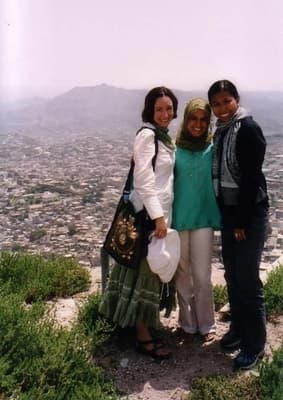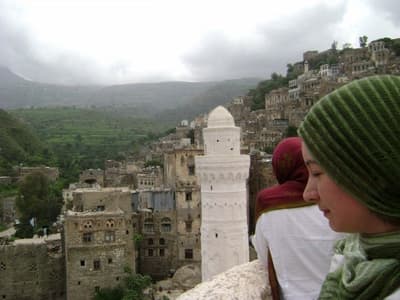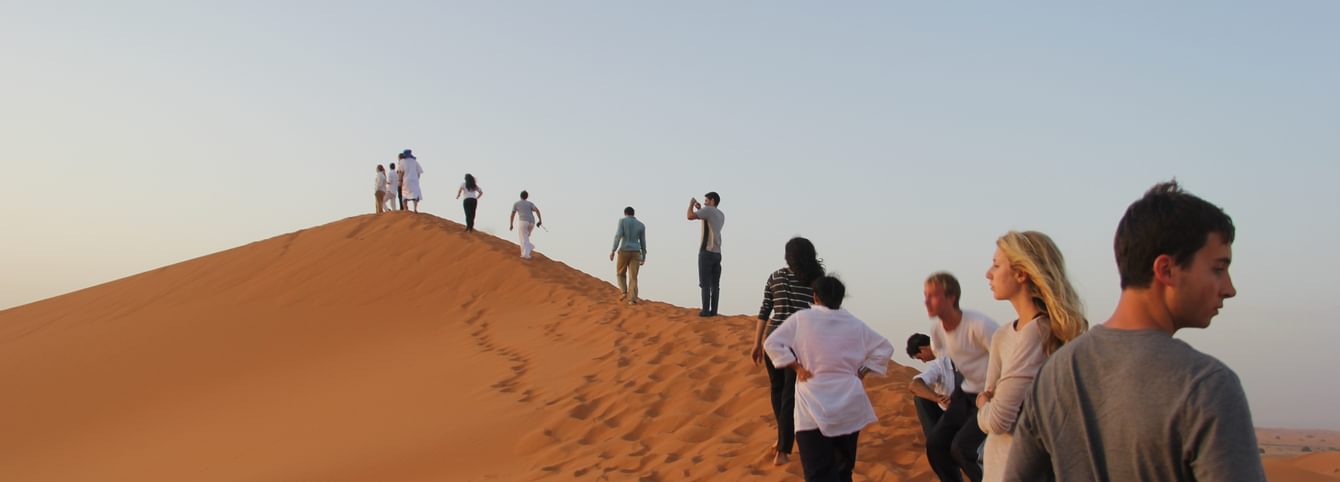Meet Heather Sweetser— CLS Program Advisor, 2007 Arabic alumna and overall rockstar. Heather advises for CLS at University of New Mexico where she has taught Arabic for over seven years. Heather’s Arabic language journey began in 1998 when she enlisted as a linguist in the U.S. Army. An unsatisfactory experience learning Arabic fueled Heather’s desire to become an instructor herself.

Heather was recently recognized as National Language Teacher of the Year for 2022 by ACTL for her innovative teaching approach and dedication to Arabic language education. Our team would like to extend our appreciation to Heather for serving as a CLS advisor and reader for over five years.
Communications Officer Rori DiFiore had the opportunity to sit down with Heather to discuss Arabic language learning, the importance of intercultural competence and how programs like CLS teach us to communicate with greater empathy and understanding.
Rori DiFiore: Can you tell me where your personal Arabic language journey began?
Heather Sweetser: I was assigned Arabic because of the needs of the army. I went to the Defense Language Institute and while I was there, many of our teachers would only last with us for a couple of weeks and then they’d be shifted on. I found it to be a frustrating experience. I thought afterwards, I think I can teach better. Of course, it took a long time for me to get my Arabic skills up to the point where I could teach but this what spurred it on. I think there is also a misconception that good teachers of foreign languages need to be native speakers. That’s not necessarily the case.
RD: Why is it so important for students to study a critical language?
HS: Communication in general is on the decline in the United States. We are becoming so isolated from one another. We are not listening to other’s stories or points of view. Learning another language opens us up to understanding a whole group of people. It shows us there are other paths to take and we don’t have to focus on just one story. There is a danger in focusing on just one story or point of view. We need more second, third, fourth language speakers who can not only interpret but also communicate effectively. It’s not just about knowing what a word means, it is about intercultural competence. A lot of people want to work with refugees, and they have these big hearts but a lot of the time they think I want to help as opposed to what does this person really need.
RD: How do you teach students the skills to communicate cross-culturally?
HS: It begins with a recognition of how challenging it is to communicate. What we say when learning a language often doesn’t reflect all our thoughts. Sometimes what we say is much simpler because it has to be. When someone learning a language struggles to put together a sentence, it doesn’t mean they are struggling to put together a thought, that thought is there. It’s the communication aspect. So, we teach students that are learning Arabic that it is not just about the mechanics of the language. It is about having empathy for others that are struggling to communicate.
RD: What would you say to students who worry they don’t have the ability to learn a foreign language?
HS: I was not a very good Arabic student. I do not have the natural knack for languages like a lot of people do. Talking about pitfalls, I probably fell into every one of them. Perseverance is what you need to learn anything. You don’t need natural talent—in art, music, language, or anything else in this life it takes hard work and finding a good path.

RD: Why are programs like CLS important to institutions like University of New Mexico?
HS: Many of our students are not in the financial position to be able to study abroad so opportunities like CLS are crucial. Also, we are a small Arabic department, so we can only get students so far. We don’t have an extensive wealth of Arabic classes like other universities. I feel a responsibility towards our students who start taking Arabic with us, especially as first-year students, to get them on a path to fluency. CLS was so formative to me. I say to our students let’s work together to put together a great application package. I am proud of the number of University of New Mexico Arabic students who have been awarded CLS.
RD: Over the course of your years as a CLS reader and advisor, what have you noticed differentiates successful CLS applications?
HS: I think it is multi-faceted. You must have a reason for studying Arabic that is greater than yourself. In your application, it is important to articulate what is going to empower you to learn Arabic and continue to study it regardless of whether you receive CLS. A lot of applicants miss this part. You cannot learn a language in just eight weeks. CLS has to be part of a larger plan that connects to something greater than just what you want as an applicant.
RD: What makes CLS Program unique from other study abroad programs?
HS: In so many study abroad programs you stay in your expat bubble, not CLS. During my CLS Program in Yemen in 2007, we had cultural activities that pushed us to go outside and talk to Yemenis right away. Proximity to the pyramids does not help you learn Arabic if you are not talking to Egyptians. CLS gives students an opportunity to focus solely on language learning. Without worrying about finances, visas, housing, where to get food, all these distractions are taken away. I don’t know any opportunity for U.S. citizens quite like it. It is such a enriching experience, I hope it never goes away.

Advisor Chat was created to highlight the perspectives of our advisors and showcase the important work they do to make the CLS Program possible. Are you a CLS advisor who would like to be featured in an upcoming Advisor Chat? Email Communications Officer, Rori DiFiore at clsadvisors@americancouncils.org


